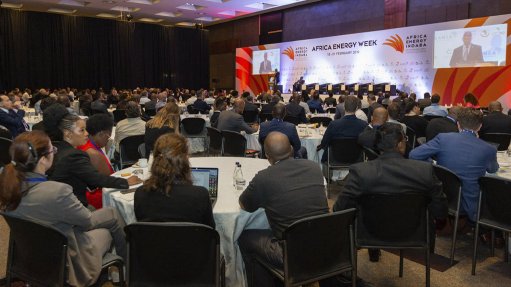
ENERGISING AFRICA The sub-Saharan and East African regions will feature strongly at the indaba as electricity demand in these regions, and the rest of Africa, is growing
The decision to host this year’s Africa Energy Indaba at the Cape Town International Convention Centre on March 3 and 4, rather than in Johannesburg, where it was hosted previously, has resulted in increased interest from African and global delegates to attend the event, says Africa Energy Indaba trade fair organisers Siyenza Events MD Liz Hart.
“The allure of Cape Town as a tourist destination does play a role in attendance. In addition, many energy companies are located in Cape Town, making attendance easier.”
Hart mentions that the twelfth edition of the Indaba will enable attendees to converse and seek solutions to allow for adequate energy generation in Africa. With a focus on dialogue and outcomes, the Indaba will create a strategic plan, with shared knowledge and content, for regional implementation through the event’s strategic partners.
These partners include the World Energy Council, the African Union Development Agency, South African National Energy Association and the South African Electrotechnical Export Council.
Outcomes from the event are documented and then implemented at a regional level, “setting the scene for implementation and change”.
Distinguished delegates will discuss and offer solutions to mitigate Africa’s energy problems, as well as share their experience and insights on the vigorous energy sector in Africa.
These delegates comprise a “resourceful amalgam” of project developers, financiers, industry experts, energy users, government officials and energy industry manufacturers.
“The Indaba will prove pertinent to companies showcasing solutions to energy concerns in Africa. This includes rural energy solutions, services for major energy projects, urbanisation and energy needs, as well as the implementation and management of renewable- and sustainable energy projects,” Hart enthuses.
Exhibitors will be able to promote their businesses to local industry players, as well as global investors, buyers and governments.
A key feature of this year’s event is the MarketPlace Business Matchmaking Programme, which will provide an efficient way of interacting and networking, particularly when the expected increase in the number of attendees is taken into consideration, says Hart.
“According to business-to-business (B2B) event networking platform Converve, 52% of trade fair, conference and B2B event organisers consider B2B matchmaking to be a crucial success factor for their event. Networking is one of the most important reasons most people attend events or trade shows. It is the backbone of a successful business transaction.”
She mentions that meeting the right people at the trade show is important for the return on investment generated after a business matchmaking session, and the Africa Energy Indaba “is known for attracting quality participants who are energy decision-makers”.
Hart emphasises that the most vital aspect of business matchmaking is face-to-face contact between buyers and sellers of products and services, as it enables customers to “forge bonds” and gain first-hand experience of products or services. It is for this reason that product demonstrations are vital for business matchmaking, she adds.
“Attending receptions and other networking opportunities helps businesses to engage with industry leaders and influential decision- makers. A business matchmaking event enables attendees to collect useful intelligence after a meeting. Stronger relationships are formed when influential buyers meet sellers of repute.”
She reiterates the importance of this event, particularly in the current constrained economic environment, with increased load-shedding in the pipeline and how it can assist companies in remaining resilient and growing business.
The ability of this event to attract an international audience enables businesses to meet and engage with many potential foreign customers in a short time. This would generally cost a significant amount of time and money outside the event, particularly as travel in Africa is expensive and time- consuming, Hart highlights.
“For exhibiting companies, this is a crucial platform as part of exhibitors’ marketing mix to expose products to buyers more affordably.”
Hart expects growth in presence at the event in focused energy sectors such as e-Mobility, energy storage and alternative energy solutions. The sub-Sahara and East Africa regions will feature strongly at the Africa Energy Indaba, as demand for electricity in these regions, and the rest of Africa, is growing.